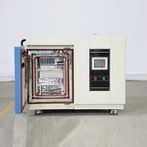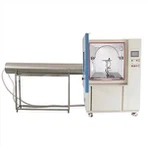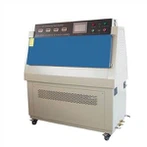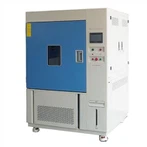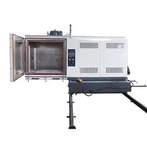Salt spray testing is a crucial process in evaluating the corrosion resistance of materials and coatings. As manufacturers and engineers seek to enhance the durability of their products, understanding the intricacies of salt spray testing becomes paramount. In this comprehensive guide, we'll delve into the duration of salt spray tests using a salt spray test chamber, exploring the factors that influence test length and the significance of these timeframes in various industries.
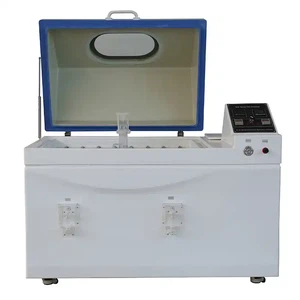
Factors Influencing Salt Spray Test Duration
Material Composition and Coating Type
The duration of a salt spray test is heavily influenced by the material being tested and any protective coatings applied. Different materials and coatings exhibit varying levels of corrosion resistance, necessitating shorter or longer exposure times.
Industry Standards and Specifications
Various industries have established specific standards for salt spray testing, which often dictate minimum test durations. These standards, such as ASTM B117 or ISO 9227, provide guidelines for test procedures and durations based on the intended application of the material or product.
Environmental Factors and Test Parameters
Salt concentration, pH level, temperature, and humidity can all impact the rate of corrosion.
Typical Durations for Salt Spray Tests
Short-Term Tests (24-96 Hours)
Short-term salt spray tests, typically lasting between 24 to 96 hours, are often used for quick evaluations or comparative testing. These tests can provide initial insights into a material's corrosion resistance and are particularly useful for screening different coatings or treatments. While not as comprehensive as longer tests, short-term evaluations can help identify obvious deficiencies or compare relative performance between samples.
Medium-Term Tests (100-500 Hours)
Medium-duration tests, ranging from 100 to 500 hours, offer a more thorough assessment of corrosion resistance. These tests are commonly used in industries where moderate corrosion resistance is required, such as automotive components or household appliances. The extended duration allows for a more accurate prediction of long-term performance while still maintaining a reasonable testing timeframe.
Long-Term Tests (1000+ Hours)
For applications demanding exceptional corrosion resistance, long-term salt spray tests exceeding 1000 hours are often employed. These extended tests are crucial for evaluating materials used in harsh environments, such as marine equipment, offshore structures, or aerospace components. Long-term testing using a salt spray chamber provides the most comprehensive assessment of a material's corrosion resistance, allowing manufacturers to confidently predict performance over many years of use.
LIB Salt Spray Test Chambers
LIB basic salt spray chambers meet the requirements of basic and continuous salt spray tests, such as ASTM B117, ISO 9227 and similar international test standards, and can perform NSS, ASS and CASS test.
|
Model |
S-150 |
S-250 |
S-750 |
S-010 |
S-016 |
S-020 |
|
Internal dimensions (mm) |
590*470*400 |
1000*640*500 |
1100*750*500 |
1000*1300*600 |
900*1600*720 |
1000*2000*800 |
|
Overall dimensions (mm) |
1460*760*1140 |
1850*960*1350 |
1950*1030*1350 |
2000×1300×1600 |
2300×1300×1700 |
2700×1300×1900 |
|
Interior Volume (L) |
110 |
320 |
410 |
780 |
1030 |
1600 |
|
Temperature Range |
Ambient ~ +60 ℃ |
|||||
|
Temperature Fluctuation |
± 0.5 ℃ |
|||||
|
Temperature Deviation |
± 2.0 ℃ |
|||||
|
Humidity Range |
95% ~ 98% RH |
|||||
|
Salt Fog Deposition |
1~2ml / 80cm2 · h |
|||||
|
Spray Type |
Continuous / Periodic |
|||||
|
Salt Fog Collected |
Fog collector and fog measure cylinder |
|||||
